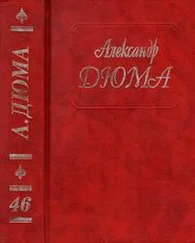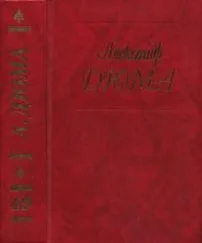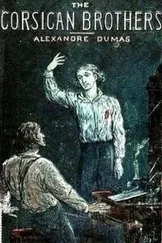Александр Дюма - The Conspirators
Здесь есть возможность читать онлайн «Александр Дюма - The Conspirators» весь текст электронной книги совершенно бесплатно (целиком полную версию без сокращений). В некоторых случаях можно слушать аудио, скачать через торрент в формате fb2 и присутствует краткое содержание. Год выпуска: 2014, Издательство: epubBooks Classics, Жанр: Историческая проза, на английском языке. Описание произведения, (предисловие) а так же отзывы посетителей доступны на портале библиотеки ЛибКат.
- Название:The Conspirators
- Автор:
- Издательство:epubBooks Classics
- Жанр:
- Год:2014
- ISBN:нет данных
- Рейтинг книги:3 / 5. Голосов: 1
-
Избранное:Добавить в избранное
- Отзывы:
-
Ваша оценка:
- 60
- 1
- 2
- 3
- 4
- 5
The Conspirators: краткое содержание, описание и аннотация
Предлагаем к чтению аннотацию, описание, краткое содержание или предисловие (зависит от того, что написал сам автор книги «The Conspirators»). Если вы не нашли необходимую информацию о книге — напишите в комментариях, мы постараемся отыскать её.
The Conspirators — читать онлайн бесплатно полную книгу (весь текст) целиком
Ниже представлен текст книги, разбитый по страницам. Система сохранения места последней прочитанной страницы, позволяет с удобством читать онлайн бесплатно книгу «The Conspirators», без необходимости каждый раз заново искать на чём Вы остановились. Поставьте закладку, и сможете в любой момент перейти на страницу, на которой закончили чтение.
Интервал:
Закладка:
"How! your arrears, Monsieur Buvat? What do you mean?"
"I mean, monsieur, that I have the honor to be employed at the royal library, but that for six years I have received no salary."
"And how much do your arrears amount to?"
"Monsieur, I must have a pen and ink to calculate exactly."
"Oh, but something near the mark—calculate from memory."
"To five thousand three hundred and odd francs, besides the fractions of sous and deniers."
"And you wish for payment, Monsieur Buvat?"
"I do not deny it, monsieur; it would give me great pleasure."
"And is this all you ask?"
"All."
"But do you not ask anything for the service which you have just rendered France?"
"Indeed, monsieur, I should like permission to let my ward Bathilde know that she may be easy on my account, and that I am a prisoner at the Palais Royal. I would also ask—if it would not be imposing upon your kindness too much—that she might be allowed to pay me a little visit, but, if this second request is indiscreet, I will confine myself to the first."
"We will do better than that; the causes for which you were retained exist no more, and we are going to set you at liberty; so you can go yourself to carry the news to Bathilde."
"What, monsieur, what!" cried Buvat; "am I, then, no longer a prisoner?"
"You can go when you like."
"Monsieur, I am your very humble servant, and I have the honor of presenting you my respects."
"Pardon, Monsieur Buvat, one word more."―"Two, monsieur."
"I repeat to you that France is under obligations to you, which she will acquit. Write, then, to the regent, inform him of what is due to you, show him your situation, and if you have a particular desire for anything, say so boldly. I guarantee that he will grant your request."
"Monsieur, you are too good, and I shall not fail. I hope, then, that out of the first money which comes into the treasury—"
"You will be paid. I give you my word."
"Monsieur, this very day my petition shall be addressed to the regent."
"And to–morrow you will be paid."
"Ah, monsieur, what goodness!"
"Go, Monsieur Buvat, go; your ward expects you."
"You are right, monsieur, but she will lose nothing by having waited for me, since I bring her such good news. I may have the honor of seeing you again, monsieur. Ah! pardon, would it be an indiscretion to ask your name?"
"Monsieur Philippe."
"Au revoir! Monsieur Philippe!"
"Adieu! Monsieur Buvat. One instant—I must give orders that they are to allow you to pass."
At these words he rang: an usher appeared. "Send Ravanne."
The usher went out; a few seconds afterward a young officer of guards entered.
"Ravanne," said Monsieur Philippe, "conduct this gentleman to the gate of the Palais Royal. There he is free to go where he wishes."
"Yes, monseigneur," answered the young officer.
A cloud passed over Buvat's eyes, and he opened his mouth to ask who it was that was being called monseigneur, but Ravanne did not leave him time.
"Come, monsieur," said he, "I await you."
Buvat looked at Monsieur Philippe and the page with a stupefied air; but the latter—not understanding his hesitation—renewed his invitation to follow. Buvat obeyed, drawing out his handkerchief, and wiping his forehead.
At the door, the sentinel wished to stop Buvat.
"By the order of his royal highness Monseigneur the Regent, monsieur is free," said Ravanne.
The soldier presented arms, and allowed him to pass.
Buvat thought he should faint, he felt his legs fail him, and leaned against a wall.
"What is the matter, monsieur?" asked his guide.
"Pardon, monsieur," murmured Buvat, "but who is the person to whom I have just had the honor of speaking?"
"Monseigneur the Regent in person."
"Not possible!"
"Not only possible, but true."
"What! it was the regent himself who promised to pay me my arrears?"
"I do not know what he promised you, but I know that the person who gave me the order to accompany you was the regent."
"But he told me he was called Philippe."
"Well, he is—Philippe d'Orleans."
"That is true, monsieur, that is true, Philippe is his Christian name. The regent is a brave man, and when I remember that there exist scoundrels who conspire against him—against a man who has promised to pay me my arrears—but they deserve to be hanged, all of them, to be broken on the wheel, drawn and quartered, burned alive; do not you think so, monsieur?"
"Monsieur," said Ravanne, laughing, "I have no opinion on matters of such importance. We are at the gate; I should be happy to accompany you further, but monseigneur leaves in half an hour for the Abbey of Chelles, and, as he has some orders to give me before his departure, I am—to my great regret—obliged to quit you."
"All the regret is on my side, monsieur," said Buvat, graciously, and answering by a profound bow to the slight nod of the young man, who, when Buvat raised his head, had already disappeared. This departure left Buvat perfectly free in his movements, and he profited thereby to take his way down the Place des Victoires toward the Rue du Temps–Perdu, round the corner of which he turned at the very moment when D'Harmental ran his sword through the body of Roquefinette. It was at this moment that poor Bathilde—who was far from suspecting what was passing in her neighbor's room—had seen her guardian, and had rushed to meet him on the stairs, where Buvat and she had met at the third flight.
"Oh, my dear, dear father," cried Bathilde, remounting the staircase in Buvat's arms, and stopping to embrace him at every step, "where have you been? What has happened? How is it that we have not seen you since Monday? What uneasiness you have caused us, mon Dieu! But something extraordinary must have occurred."
"Yes, most extraordinary," answered Buvat.
"Ah, mon Dieu! tell then me, first, where do you come from?"
"From the Palais Royal."
"What! from the Palais Royal; and with whom were you stopping at the Palais Royal?"
"The regent."
"You with the regent! and what about?"
"I was a prisoner."
"A prisoner—you!"
"A State prisoner."
"And why were you a prisoner?"
"Because I have saved France."
"Oh, father! are you mad?" cried Bathilde, terrified.
"No, but there has been enough to make me so if I had not had a pretty strong head."
"Oh, explain, for God's sake!"
"Fancy that there was a conspiracy against the regent."
"Oh, mon Dieu!"
"And that I belonged to it."
"You?"
"Yes, I, without being—that is to say, you know that Prince de Listhnay?"
"Well!"
"A sham prince, my child, a sham prince!"
"But the copies which you made for him?"
"Manifestoes, proclamations, incendiary papers, a general revolt, Brittany—Normandy—the States–General—king of Spain—I have discovered all this."
"You?" cried Bathilde, horrified.
"Yes, I; and the regent has called me the savior of France—me; and is going to pay me my arrears."
"My father, my father, you talk of conspirators, do you remember the name of any of them?"
"Firstly, Monsieur the Duc de Maine; fancy that miserable bastard conspiring against a man like Monseigneur the Regent. Then a Count de Laval, a Marquis de Pompadour, a Baron de Valef, the Prince de Cellamare, the Abbe Brigaud, that abominable Abbe Brigaud! Think of my having copied the list."
"My father," said Bathilde, shuddering with fear, "my father, among all those names, did you not see the name—the name—of—Chevalier—Raoul d'Harmental?"
"That I did," cried Buvat, "the Chevalier Raoul d'Harmental—why he is the head of the company: but the regent knows them all, and this very evening they will all be arrested, and to–morrow hanged, drawn, quartered, broken on the wheel."
Читать дальшеИнтервал:
Закладка:
Похожие книги на «The Conspirators»
Представляем Вашему вниманию похожие книги на «The Conspirators» списком для выбора. Мы отобрали схожую по названию и смыслу литературу в надежде предоставить читателям больше вариантов отыскать новые, интересные, ещё непрочитанные произведения.
Обсуждение, отзывы о книге «The Conspirators» и просто собственные мнения читателей. Оставьте ваши комментарии, напишите, что Вы думаете о произведении, его смысле или главных героях. Укажите что конкретно понравилось, а что нет, и почему Вы так считаете.












